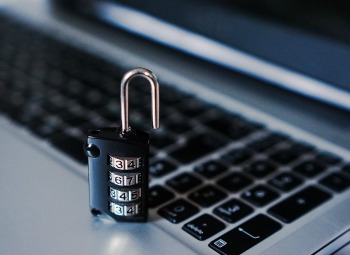Technology is not 100% safe from hackers. It is common knowledge. If they can hack the most complex of systems of the government and big companies, it is effortless to do that to ordinary citizens like the rest of us mere mortals. The problem now is that we use too much technology in our lives. From the moment we wake up until we close our eyes, we live and breathe technology.
 And it is not just about our obsession with technology. Technology makes our world go round as most processes and business relies heavily on it to function. Just imagine its impact on our lives. But there is an accompanying risk we can’t always ignore: hackers. A hacking attack experienced in the last quarter of last year only revealed the severity and gravity of such a situation not to mention how vulnerable we all are.
And it is not just about our obsession with technology. Technology makes our world go round as most processes and business relies heavily on it to function. Just imagine its impact on our lives. But there is an accompanying risk we can’t always ignore: hackers. A hacking attack experienced in the last quarter of last year only revealed the severity and gravity of such a situation not to mention how vulnerable we all are.
Major websites were inaccessible to people across wide swaths of the United States on Friday after a company that manages crucial parts of the internet’s infrastructure said it was under attack.
Users reported sporadic problems reaching several websites, including Twitter, Netflix, Spotify, Airbnb, Reddit, Etsy, SoundCloud and The New York Times.
The company, Dyn, whose servers monitor and reroute internet traffic, said it began experiencing what security experts called a distributed denial-of-service attack just after 7 a.m. Reports that many sites were inaccessible started on the East Coast, but spread westward in three waves as the day wore on and into the evening.
And in a troubling development, the attack appears to have relied on hundreds of thousands of internet-connected devices like cameras, baby monitors and home routers that have been infected — without their owners’ knowledge — with software that allows hackers to command them to flood a target with overwhelming traffic.
(Via: https://www.nytimes.com/2016/10/22/business/internet-problems-attack.html?_r=0)
Even techy everyday objects can be used against you. And this hacking incident made everyone realized just that.
In the aftermath of the attack, security experts reported finding that flaws in the Internet of Things had made the problem worse. The Internet of Things is the collection of everyday objects that can gather information then share it online. These objects use built-in sensors and other small devices to interact with the environment around them.
For example, “smart” basketballs or soccer balls can collect data on shooting skills to help a player improve. Smart dolls can recognize their owners and have friendly conversations. Smart cars can monitor the road for signs of danger. Even an ordinary house can become a smart home. A heater might shut itself off when it senses that the house is empty, for example. Or a lamp might turn itself off after a child falls asleep.
The possibilities are almost endless. But storing data about your life online — and all the time — brings hidden risks.
(Via: https://www.sciencenewsforstudents.org/article/when-your-stuff-spies-you)
As technology advances; so does the capability of hackers. They also innovate and adapt to the safety and security measures implemented by most websites. Cloud computing is one example. The cloud is now a favorite and convenient data storage option for many but it is no longer safe from hackers. But what will happen to our data now that the hackers found a way to bypass cloud cyber security among others.
In recent years, computing has gone to the cloud. But this so-called “cloud computing” can pose new risks, a study finds. The reason: Computers that make up the cloud have become a hideout for malware, programs that can hijack or harm someone’s computer or files.
People use “cloud computing” to free up space on their own computers. They can store files containing anything from research data to vacation snapshots. Some people also run programs on devices connected through the cloud, rather than on their own, personal machines. This cloud computing, therefore, makes it possible for someone to share files quickly with a lot of other people.
But for all its benefits, the cloud can have a dark side. That’s a finding of the new study. Malware stored on devices that make up the cloud can turn on — and against you — when you click on certain fraudulent website links or when you download an attachment that masks its real intent. These links or attachments will trick the user, linking its computer to files in some cloud where malware lurks.
(Via: https://www.sciencenewsforstudents.org/article/computer-hackers-take-cloud)
Hackers have stepped up their game. If there is one good thing that can ever come out of this issue is that perhaps it will keep everyone on their toes. Cliché as it may seem, prevention is always better than cure.
Take cybersecurity seriously. Install firewalls or anti-virus software to protect your gadget from modern hacking threats. Be wary of the sites you visit and limit online transactions whenever possible. Also, limit the amount of technology you use in your life. You don’t need all those smart gadgets to live in your day-to-day.
And most importantly, remember that data is such a precious commodity that is often underrated. Protect yours at all cost. Identity theft is possible, always keep that in mind. Hackers are just around to steal your information at a time when you are vulnerable the most.
